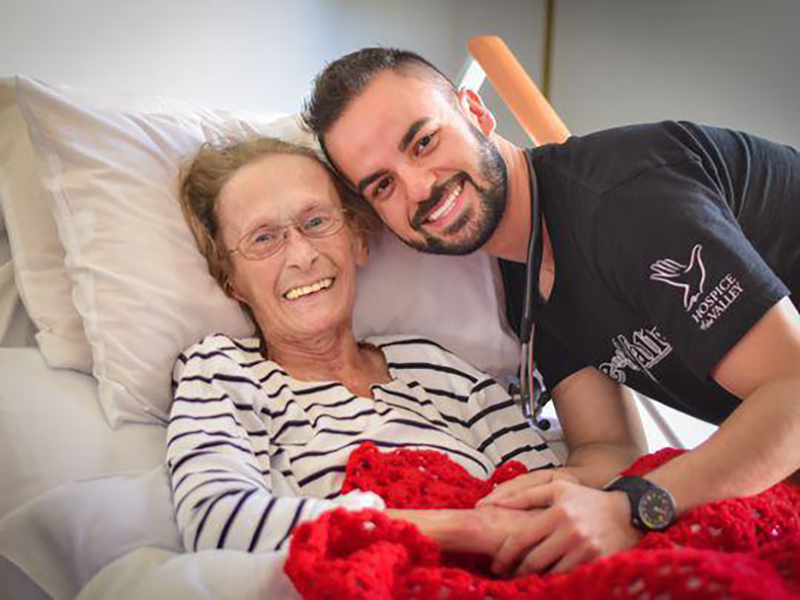By Lin Sue Cooney
Not surprisingly, many people are frightened by the word “hospice” because they associate it with death. But if you have a terminal illness, hospice is exactly what the doctor ordered. Hospice focuses on the opposite of death– it’s a philosophy of care that helps people make the most of the time they have left by maximizing quality of life, bringing comfort and dignity into an end-of-life journey, and supporting family members who are struggling with stress and grief.
That said, there are a lot of misconceptions about hospice care…and nothing is scarier than the unknown, so let’s dispel some common myths.
You lose your doctor
Hospice is about choice. If you have a doctor you like and trust and want involved in your care, you can have that! Hospice teams work alongside your primary-care physician to develop the best plan of care for you. Together we support your goals and desires — it’s YOUR journey.
Hospice care in your home is expensive
Even though our care teams come to you, wherever you live — you don’t have to worry about cost. Medicare Part A covers hospice care, medical equipment and medications needed to treat your illness. No Medicare? Most insurance plans cover hospice. And if you don’t have insurance — not-for-profit Hospice of the Valley will care for you regardless of ability to pay. It’s been our mission for 42 years — an important distinction from for-profit hospices.
You can’t change your mind
You’re always free to leave hospice care to pursue additional treatments or try a new therapy. There is no rule requiring you to stay on hospice. Patients come on and sign off whenever they choose — it’s their decision.
All hospices are the same
Just as all restaurants are not the same, all music is not similar, and all people certainly are not — hospices vary in their level of experience and expertise. Medicare allows you to choose your own hospice, but if you don’t make a choice, someone — a hospital, a doctor, a facility — will choose for you. Fortunately, if you’re ever dissatisfied with a hospice, all it takes is a phone call to change to another.
You go on hospice to die
Often when patients stop curative treatment and start receiving hospice care, something amazing happens. The social support, nursing care and physician management stabilizes their condition and quality of life actually improves. Multiple studies show that receiving hospice sooner in the disease process can often extend life. Imagine coming on hospice to live longer!
Hospice teams also support families — helping with important decisions, educating about what to expect, even counseling after a loved one dies. It’s the most personalized, patient- and family-focused care there is!
When is the right time for hospice? It’s different for everyone but start with your doctor or call us with your questions, anytime, at (602) 530-6900, or visit hov.org





